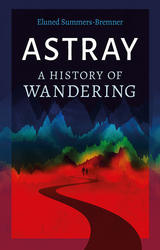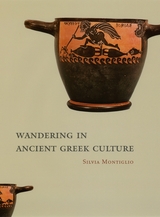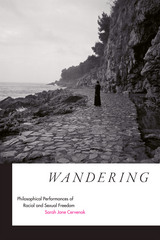3 books about Wandering

Astray
A History of Wandering
Eluned Summers-Bremner
Reaktion Books, 2023
A meandering celebration of the indirect and unforeseen path, revealing that to err is not just human—it is everything.
This book explores how, far from being an act limited to deviation from known pathways or desirable plans of action, wandering is an abundant source of meaning—a force as intimately involved in the history of our universe as it will be in the future of our planet. In ancient Australian Aboriginal cosmology, in works about the origins of democracy and surviving disasters in ancient Greece, in Eurasian steppe nomadic culture, in the lifeways of the Roma, in the movements of today’s refugees, and in our attempts to preserve spaces of untracked online freedom, wandering is how creativity and skills of adaptation are preserved in the interests of ongoing life. Astray is an enthralling look at belonging and at notions of alienation and hope.
This book explores how, far from being an act limited to deviation from known pathways or desirable plans of action, wandering is an abundant source of meaning—a force as intimately involved in the history of our universe as it will be in the future of our planet. In ancient Australian Aboriginal cosmology, in works about the origins of democracy and surviving disasters in ancient Greece, in Eurasian steppe nomadic culture, in the lifeways of the Roma, in the movements of today’s refugees, and in our attempts to preserve spaces of untracked online freedom, wandering is how creativity and skills of adaptation are preserved in the interests of ongoing life. Astray is an enthralling look at belonging and at notions of alienation and hope.
[more]

Wandering in Ancient Greek Culture
Silvia Montiglio
University of Chicago Press, 2005
From the Archaic period to the Greco-Roman age, the figure of the wanderer held great significance in ancient Greece. In the first comprehensive study devoted to this theme, Wandering in Ancient Greek Culture unearths the many meanings attached to this practice over the centuries. Employing a broad range of literary and philosophical texts, Silvia Montiglio demonstrates how wandering has been conceptualized from Homer's Odysseus—the hero "who wandered much"—in the eighth century BCE to pagan sages of the early Roman Empire such as Saint John the Baptist in the first century AD.
Attitudes toward wandering have evolved in accordance with cultural perspectives, causing some characterizations to persist while others have faded. For instance, the status of wanderers in Greek societies varied from outcasts and madmen to sages, who were recognized as mystical, even divine. Examining the act of wandering through many lenses, Wandering in Ancient Greek Culture shows how the transformation of the wanderer coincided with new perceptions of the world and of travel and invites us to consider its definition and import today.
Attitudes toward wandering have evolved in accordance with cultural perspectives, causing some characterizations to persist while others have faded. For instance, the status of wanderers in Greek societies varied from outcasts and madmen to sages, who were recognized as mystical, even divine. Examining the act of wandering through many lenses, Wandering in Ancient Greek Culture shows how the transformation of the wanderer coincided with new perceptions of the world and of travel and invites us to consider its definition and import today.
[more]

Wandering
Philosophical Performances of Racial and Sexual Freedom
Sarah Jane Cervenak
Duke University Press, 2014
Combining black feminist theory, philosophy, and performance studies, Sarah Jane Cervenak ruminates on the significance of physical and mental roaming for black freedom. She is particularly interested in the power of wandering or daydreaming for those whose mobility has been under severe constraint, from the slave era to the present. Since the Enlightenment, wandering has been considered dangerous and even criminal when associated with people of color. Cervenak engages artist-philosophers who focus on wayward movement and daydreaming, or mental travel, that transcend state-imposed limitations on physical, geographic movement. From Sojourner Truth's spiritual and physical roaming to the rambling protagonist of Gayl Jones's novel Mosquito, Cervenak highlights modes of wandering that subvert Enlightenment-based protocols of rationality, composure, and upstanding comportment. Turning to the artists Pope.L (William Pope.L), Adrian Piper, and Carrie Mae Weems, Cervenak argues that their work produces an otherworldly movement, an errant kinesis that exceeds locomotive constraints, resisting the straightening-out processes of post-Enlightenment, white-supremacist, capitalist, sexist, and heteronormative modernity. Their roaming animates another terrain, one where free, black movement is not necessarily connected to that which can be seen, touched, known, and materially valued.
[more]
READERS
Browse our collection.
PUBLISHERS
See BiblioVault's publisher services.
STUDENT SERVICES
Files for college accessibility offices.
UChicago Accessibility Resources
home | accessibility | search | about | contact us
BiblioVault ® 2001 - 2024
The University of Chicago Press









